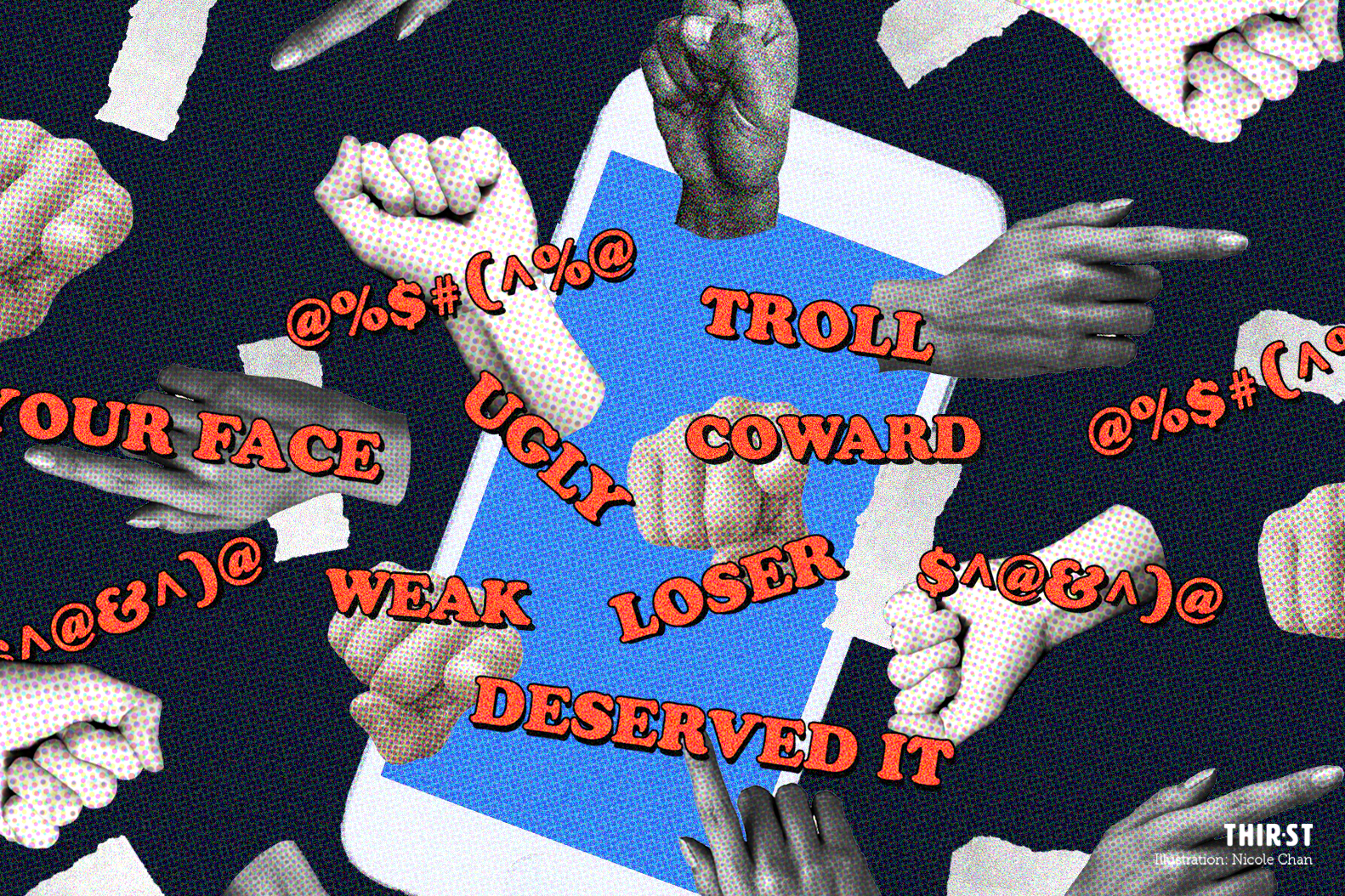I recently heard some alarming statistics.
Did you know that a recent study found that half of teenagers in Singapore experience cyberbullying?
This figure (52%) came from a global survey that included 11,963 respondents here, which was split among two groups: children (aged 8–12) and teenagers (aged 13–19).
Highlighting this percentage at the SOS Symposium 2021 last month, Joanne Wong, Head of TOUCH Cyber Wellness, went on to share how the situation on the ground bears out this finding based on what she has observed in schools.
But that’s not all.
In fact, after going through the definitions of cyberbullying with workshop participants, Joanne said that many more realise that they have been bullied online before.
“The question I have for my students is that: How come you’re not aware if you have actually been a victim of cyberbullying?” she continued.
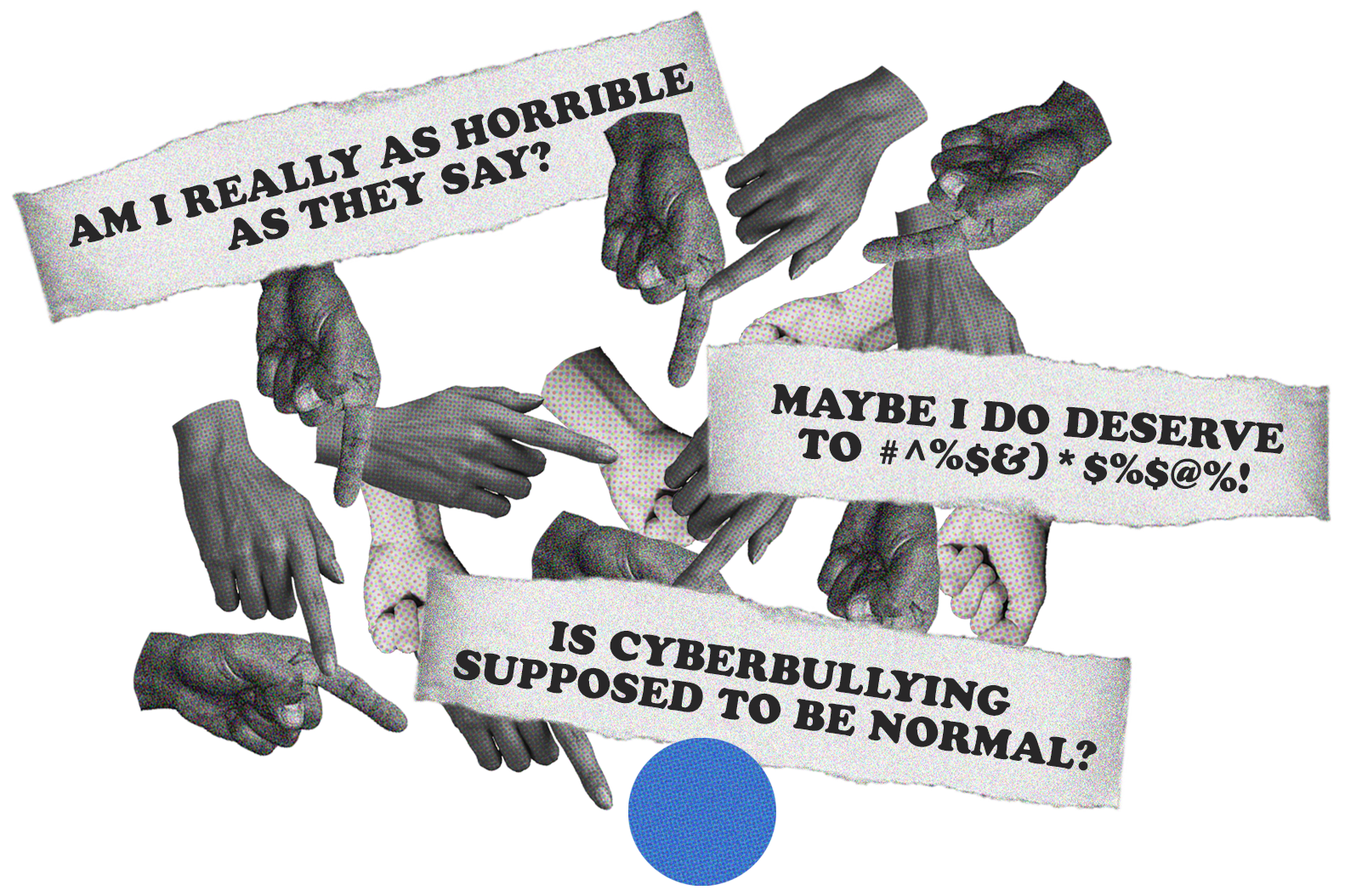
The answer? Some think this is the norm.
“They’re very used to this because it’s something that they witness and observe every day,” said Joanne, adding that it doesn’t just happen on social media, but also in gaming communities and chat groups.
This brings us to an important point that needs to be addressed.
Are we able to spot the signs of cyberbullying accurately? When does teasing become taunting?
WHAT EXACTLY IS CYBERBULLYING?
Aside from being something that happens on any digital platform, Joanne shared that one of the aspects of cyberbullying is the intentional, repetitive act of aggression where you know that the person wants to cause you harm.
Another thing to note is that there is an abuse of power.
“When cyberbullying happens on that online platform, most of the time victims have no chance, no way to defend themselves. They are mostly left feeling very helpless,” she explained.
“At the end of the day, we’re talking about a power imbalance between the bully — the perpetrator themselves — (and) the victim.”
Finally, all of this behaviour is challenging to stem due to the perpetrator’s anonymity.
Here are some common forms of cyberbullying shared by Joanne, with examples to illustrate.
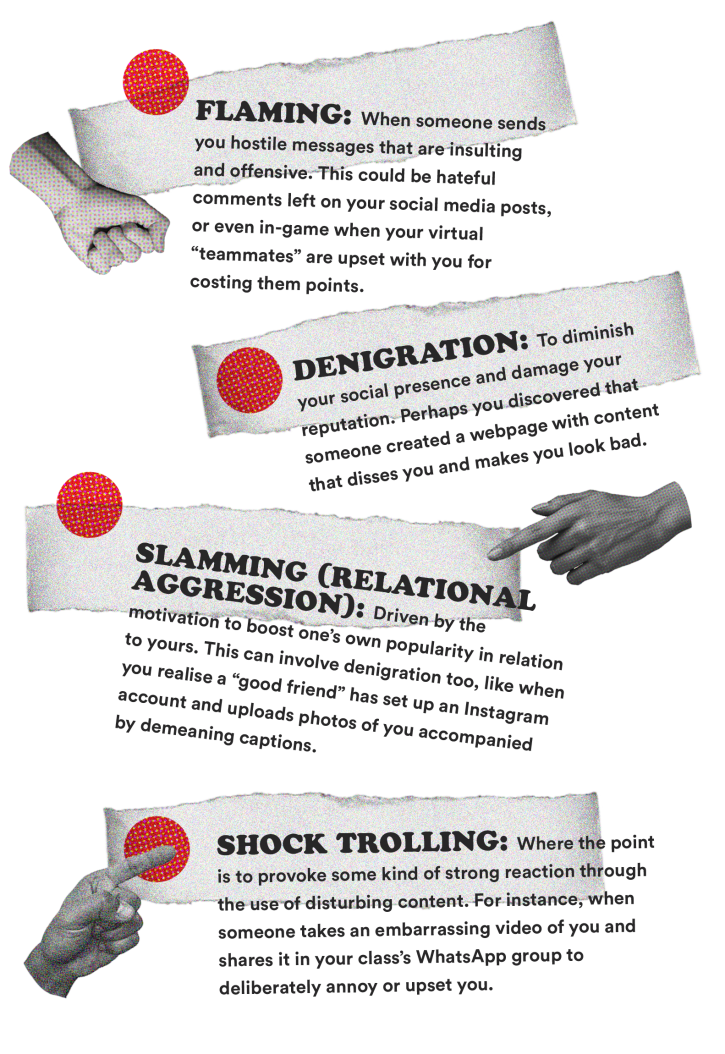
The next term wasn’t brought up at the conference, but it’s one that gets thrown around a lot these days and is good to know.
While often seen in the context of romantic or workplace relationships, gaslighting can happen online between friends too.
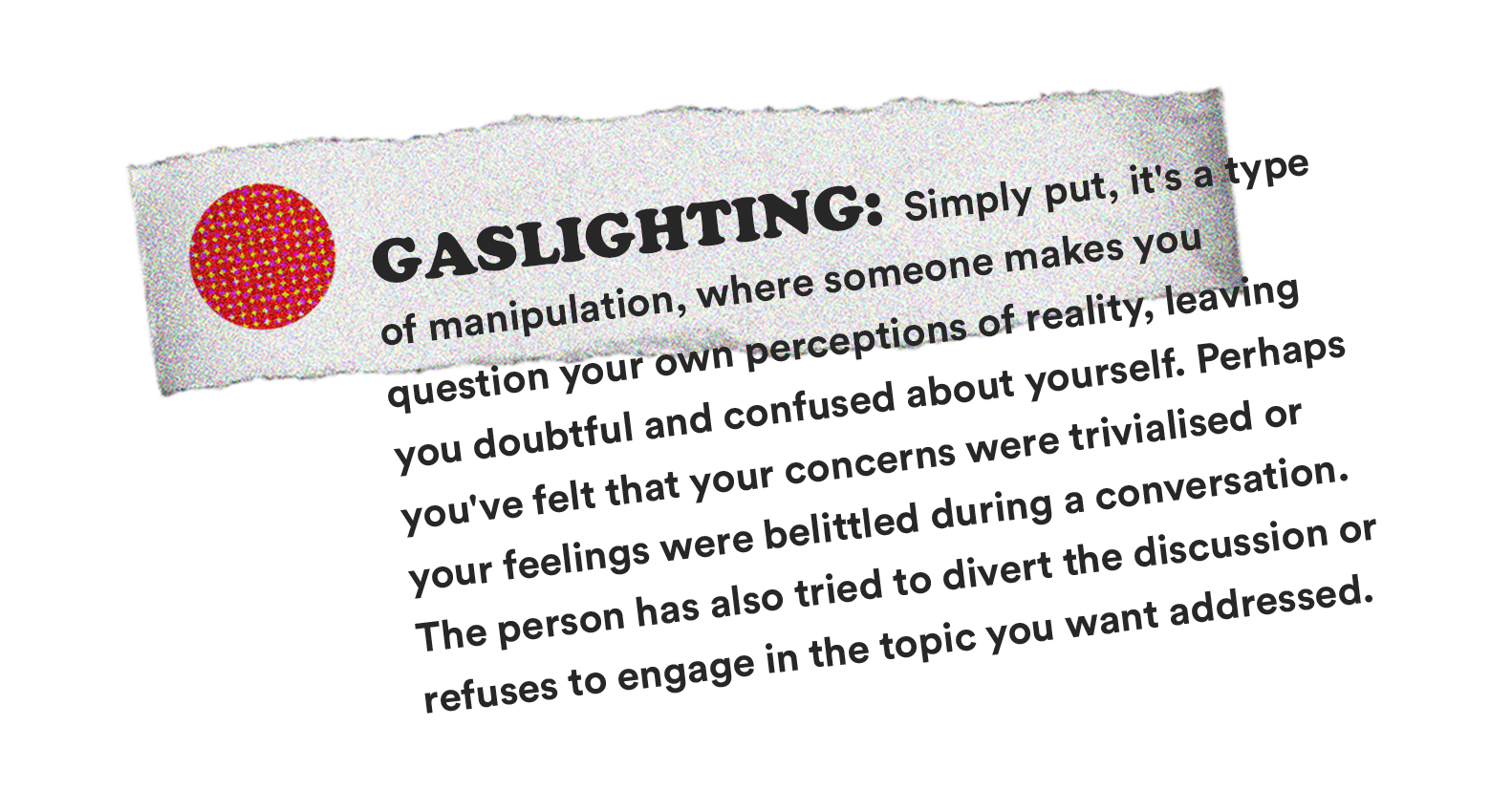
HOW CYBERBULLYING AFFECTS OUR MENTAL HEALTH
It’s no surprise then that if you find yourself on the receiving end of cyberbullying, such abuse can have a serious impact on one’s emotional and mental well-being.
Referring to a commonly cited model of psychosocial development, Joanne explained that the experiences we undergo at each phase of life would determine whether we are able to complete that stage properly.
“Our young people, starting at the age of 13 or 12, are looking for concrete evidence around them to tell them who they are, what are they good at,” she said.
“And a lot of experiences around them will shake their experience at this stage.”
These adolescence years are when we find our identity, so we will either end up building a positive one or having an identity crisis (role confusion).
“If a victim goes through this, they may simply just willingly accept what people tell them or what people say about them.”
It’s also important to note these experiences of being bullied often straddle both online and offline as well.
“Most of the time when cyberbullying is happening, we do realise that real-world bullying is happening as well,” observed Joanne.
“If a victim goes through this, they may simply just willingly accept what people tell them or what people say about them,” she said.
This would naturally decrease their self-esteem, and the stress can be manifested in behaviours such as substance use and self-harm as well as develop into a mental health issue.
Interestingly, this also works both ways.
If a youth comes from a family background where there’s a lack of parental involvement and their relationships with peers are not great, they are already struggling with role confusion.
When this youth goes online and realises that they can experience a sense of power as a cyberbully, that positive feeling can form who they are at that stage and continue to define them moving forward.
And perpetrators, too, can experience similar effects as victims.
WHAT CAN I DO IF I’M A VICTIM OF CYBERBULLYING?
One thing to know is that among the risk factors for cyberbullying, frequency of internet use is one of them.
“It has been found that if you’re very active online, you may have a higher chance of being targeted,” noted Joanne.
So spending less time online can actually decrease the instances where you might be bullied.
But what can you do if you are already being bullied?
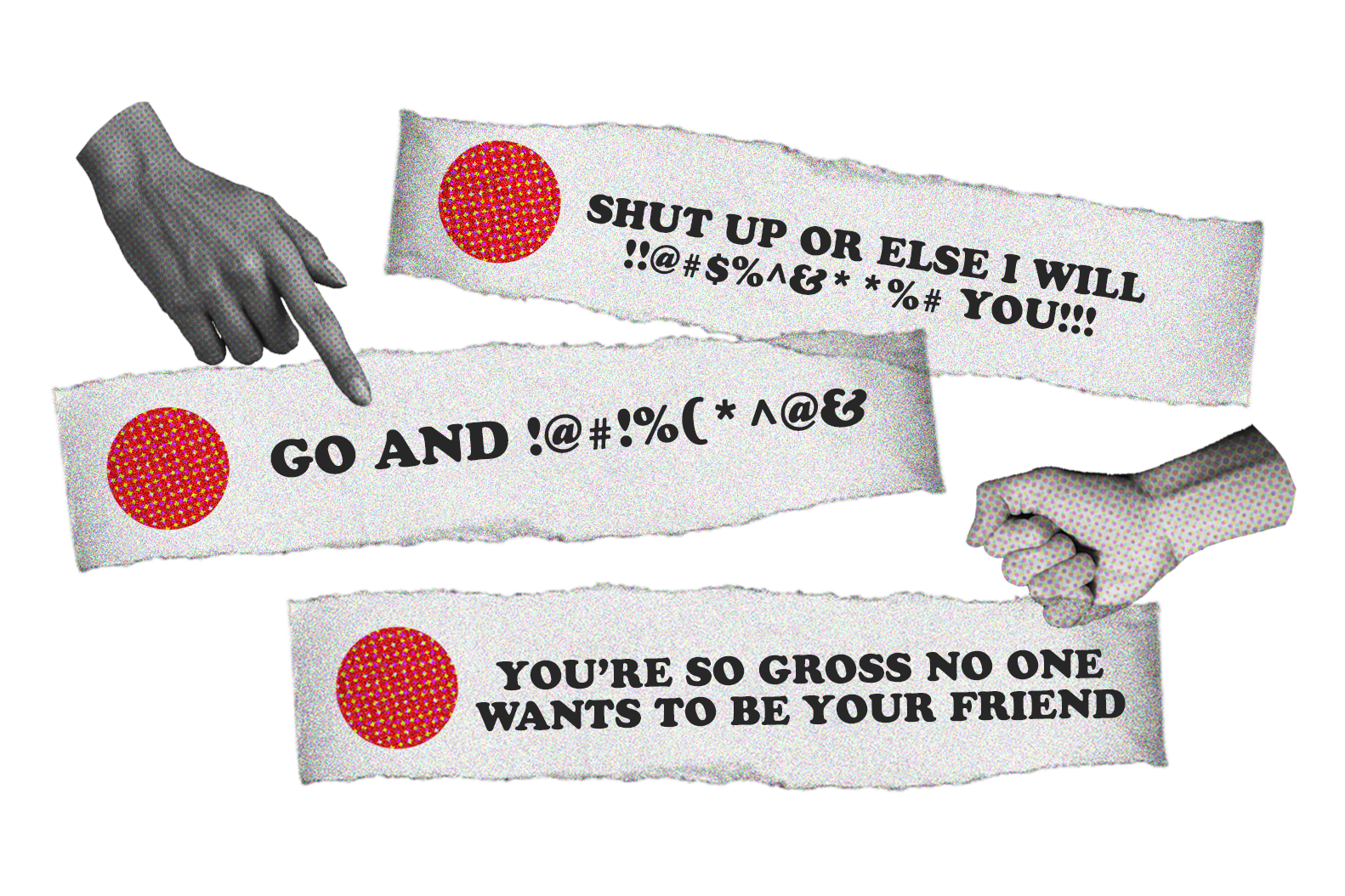
1. Take technical steps to stop it
Whether it’s TikTok, YouTube, Instagram or WhatsApp, many digital platforms now offer ways to mitigate bullying by restricting communications and reporting abusive content.
Often these resources for staying safe can be found on their Help Centres, and they can range from disabling comments to blocking users.
Another advice would be to take a screenshot to save it as evidence, added Joanne.
2. Speak to someone whom you can trust
One of the ways to heal is by sharing your experience with a person who is more mature, as that can help you in processing your emotions. You will also experience emotional release when you speak to others.
“When you speak to someone, it offloads you in the emotional part of your well-being. This is very important,” said Joanne.
Getting this emotional support can actually be more helpful than seeking justice and seeing that the bully gets punished, she pointed out.
For those who find it hard to turn to anyone they know, you can always reach out to a counsellor too.
3. Know the law
While this is not something that Joanne recommends, it’s useful to be aware that in cases where various strategies such as the above have been employed and there’s no improvement to the situation, there’s the option of legal action as well.
The Protection from Harassment Act (POHA) exists to protect individuals from cyber-bullying, among other forms of harassment, but Joanne observed that the process can be unnerving and draining.
WHAT IF I KNOW SOMEONE WHO IS BEING CYBERBULLIED?
1. Ask them what they need
It’s great that you want to help, but do check in with your friend.
“The principle is, protect yourself first. But also ask your friend: What do they like? What do they want you to do?” advised Joanne.
Your friend might just want a listening ear or some time to process their experiences.
2. Protect yourself
It’s also true that you can be singled out as a new victim, but that should not stop you from speaking out and offering a hand. You just have to do it discreetly.
Joanne gave this analogy: “It’s like what we learned at first aid. Before we run across the road to check out somebody who’s bleeding on the floor, make sure there are no oncoming cars.”
3. Report discreetly
“If you’re very concerned on your friend’s behalf, you don’t have to go onto social media and bully that person back. That’s definitely not something that I encourage you to do,” clarified Joanne.
Besides the steps that have been earlier outlined, you can also seek help from school, a parent or a trusted adult.
What if you’re the one bullying others?
Just remember that your actions can not only hurt others, but also cause harm to yourself.
The ubiquity of digital technologies has made it easier to engage in such behaviour online, as you no longer have to deal with consequences such as the victim’s immediate reaction.
You might not give much thought to what you’re doing, but when you post something online, these digital traces that you leave can end up being evidence in a court case.
So think twice about your actions and be very careful about what you share online, cautioned Joanne.
Finally, have empathy. At the end of the day, behind every internet user is a real person with emotions — you would not want somebody to do the same to you.
And for those of us who have been loved much, let us remember to extend mercy to others too.
“Do not let any unwholesome talk come out of your mouths, but only what is helpful for building others up according to their needs, that it may benefit those who listen…
“Get rid of all bitterness, rage and anger, brawling and slander, along with every form of malice. Be kind and compassionate to one another, forgiving each other, just as in Christ God forgave you.“ (Ephesians 4:29, 31-32)
If you’re feeling troubled and would like to chat with someone, help is available at these centres:
- Samaritans of Singapore (SOS): 1-767 (1-SOS) (24-hour) | pat@sos.org.sg| m.me/SamaritansofSingapore
- Institute of Mental Health: 6389-2222 (24-hour)
- National Care Hotline: 1800-202-6868
- Singapore Association for Mental Health: 1800-283-7019
- Care Corner Counselling Centre (English and Mandarin): 6353 1180
- TOUCHline (Counselling): 1800-377-2252
- Fei Yue’s Online Counselling Service: ec2.sg
- Tinkle Friend by Singapore Children’s Society: 1800-274-4788 | tinklefriend.sg (online chat)
- Silver Ribbon Singapore: 6385-3714
- Have you experienced cyberbullying before? Have you had the chance to process this with anyone?
- What kind of influence do you have online? Are you building up or tearing down? Are you spreading love or hate?
- How can you play a part in redeeming and transforming digital spaces for good?


